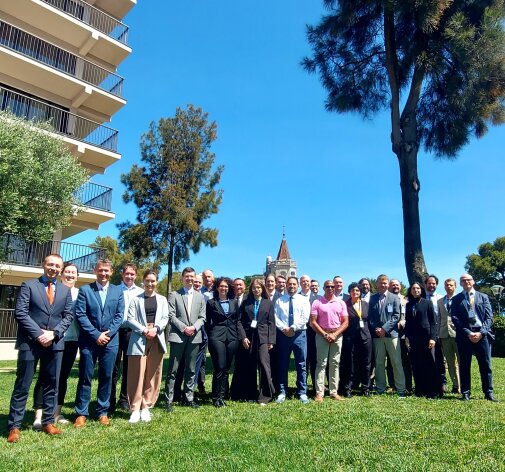3rd NATO Operational Energy Concept Writing Team meeting took place in Portugal
Recent military engagements have shown that excessive dependence on fossil fuels was a source of logistical challenges and significant costs, due to the specificities of operations (isolation of civilian energy networks, inflexibility, unpredictability, low level of resilience of energy stocks, etc.). Consequently, it is a strategic objective for the armed forces to develop an energy concept allowing them greater effectiveness on the battlefield. Furthermore, due to environmental concerns, NATO nations have been engaging the energy transition for a couple of years aiming to reach the CO2 neutrality in 2050 for most of them and NATO has recently developed an action plan on climate change and security. This evolving context will be weighting the way of supporting forces with alternative energy. As a result, new sources of energy, new energy storage solutions, and new ways of energy delivery, new power generation systems and new powertrains are expected to come in the long term. The possible impact will likely be a shift from the traditional fuel supply chain to an innovative fuel supply chain under different aspects and new risks to be managed appropriately (like interoperability issues, cyberattack, lower resilience, etc.). Therefore, in early 2021, HQ SACT has proposed to the NATO Energy Security Centre of Excellence to elaborate a NATO concept on operational energy delivered to the forces in operations and exercises.
As part of the initiatives related to the development of the NATO Operational Energy Concept (OEC), in the days between 24 and 27 April 2023, in Cascais (Portugal), following an invitation from the NATO Naval Striking and Support Forces (STRIKFORNATO), a group of experts from NATO institutions, NATO countries and partners, COE, academia (OEC Writing Team), led by the staff of the NATO Energy Security Centre of Excellence, took part in the discussions of the 3rd NATO OEC WT meeting in order to continue the intensive development of the NATO OEC and to prepare for the Concept experimentation.
Project Lead by : LTC Massimo DACCHILLE and Mrs. Jolanta ZAPKUVIENE

